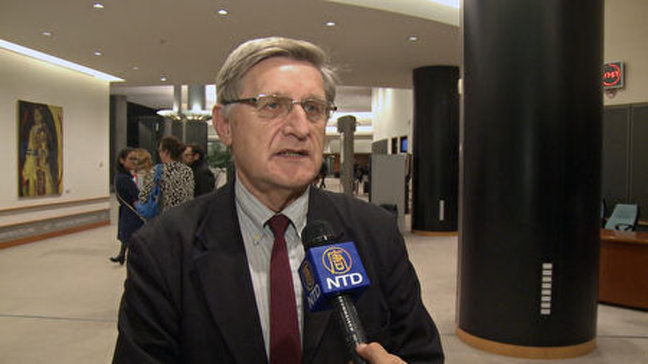In the first of a video series titled "FoRB in Five"—Freedom of Religion or Belief in Five Minutes or Less—Human Rights Without Frontiers executive director Willy Fautré speaks out on Russia’s criminalizing of a peaceful religion under the 2002 Extremism Law.

He begins: “170,000 Russians will be prosecuted if they try to go to their place of worship. This is an unprecedented situation in Europe.”
Fautré is speaking of the Jehovah's Witnesses. The campaign started with the banning of the group’s religious material. Then those who possessed this material in their own homes were prosecuted. On April 20, 2017, the Supreme Court of Russia banned the Jehovah’s Witnesses in the country; any activities of members of the group may now be considered extremist and prosecuted by the courts.
Fautré describes the Extremism Law as “very problematic” because Jehovah’s Witnesses are considered extremist not because they are violent, but because in their doctrines and teachings they believe they hold the truth with regard to the existence of God.
Russian President Vladimir Putin has put in place a “political religious doctrine,” Fautré states, a doctrine emanating from the Russian Orthodox Church asserting that “the identity of the Russian people is closely linked to… the Orthodox Church” and that other faiths “coming from abroad were perceived as a threat to the identity but also to the values of the Russian people.”
Formed in Brussels in 2001, Human Rights Without Frontiers International (HRWF) is a nonprofit association dedicated to shaping European and international policy in ways that strengthen democracy, uphold the rule of law and protect human rights globally. Willy Fautré is a longtime human rights activist and has held the position of HRWF executive director since its inception.
Through an international network of correspondents, HRWF conducts research, field missions, analysis and monitoring of a wide range of human rights concerns in many countries. The NGO issues an annual World Report on Freedom of Religion or Belief and a listing of those imprisoned for reasons of religion or belief.
National Human Rights Without Frontiers branches are active in Belgium, Bhutan, Chad, Hong Kong, Nepal and the United States. HRWF works with associated member organizations in Armenia, Azerbaijan, Democratic Republic of Congo, Georgia, Iraq, Kenya, Japan, Moldova, Russia, Rwanda, Serbia and South Korea.


